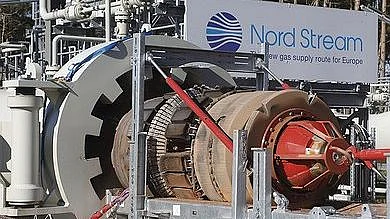Nord Stream 1, a key oil pipeline to Germany, has been shut because of an oil leak, Russian state-controlled company Gazprom said on Friday, 2 September.
The energy giant has also reportedly indicated that the pipeline would be shut indefinitely.
The pipeline had been shut for the last three days for what Gazprom said was maintenance work.
In a statement, the company said, "Gas transportation to the Nord Stream gas pipeline has been completely halted until the complaints on the operation of the equipment have been eliminated," The Guardian reported.
The news comes amid rising fears that people across the European Union (EU) will not be able to afford heating facilities in the winter. It also comes hours after G7 countries agreed to impose a price cap on Russian oil.
Russia Blames Sanctions, EU Says 'Fallacious Pretence'
Nord Stream 1 is the biggest pipeline from Russia to Europe and has the capacity to provide 55 cubic metres of gas per year. A complete halt to the pipeline's functioning could worsen an already grave energy crisis.
Ever since Russia invaded Ukraine, Moscow has been accused of using gas as a strategic weapon by reducing supplies to Europe. This has pushed prices higher and has threatened widespread blackouts in several countries.
Gazprom had earlier blamed sanctions for the disruption in gas supplies to European countries.
Earlier this week, the company's CEO Alexei Miller said that manufacturer Siemens was unable to perform repairs on Nord Stream 1 because of sanctions imposed against the state-owned company.
On the other hand, European Commission chief spokesperson Eric Mamer slammed Russia for its decision, saying, "Gazprom’s announcement this afternoon that it is once again shutting down Nord Stream 1 under fallacious pretences is another confirmation of its unreliability as a supplier."
Germany had previously advocated for the construction of a parallel pipeline, Nord Stream 2; however, the project's certification was suspended following Russia's invasion of Ukraine.
A more detailed analysis of the pipeline and its importance can be read here.
